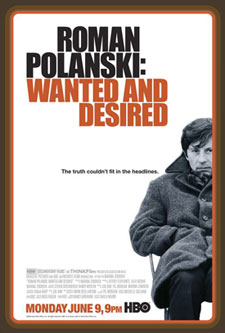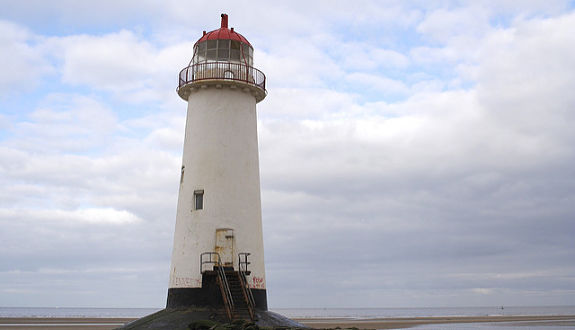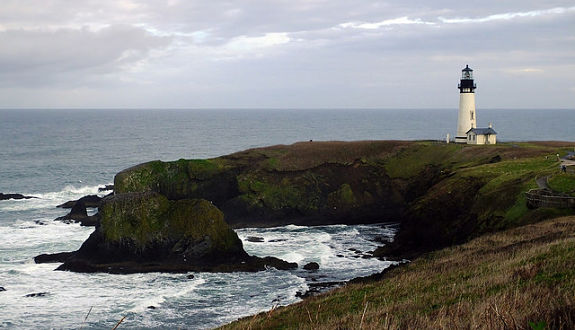
I thought I was a veritable Thurgood Marshall when I pointed out the apparent disproportionality of Plaxico Burress’ sentence when compared with other celebrities who’ve acted badly.
And then someone at the justice department decided it was time to reel in Roman Polanski. Gold. Solid gold.
I’ll just set the stage quickly, as I’m sure readers know at least something about this already.
The facts:
Roman Polanski had already directed Chinatown (which, if you haven’t seen, you need to rent immediately) when, at the age of 44, he invited then 13 year-old Samantha Geimer to a photo shoot at Jack Nicholson’s house. Long story short, after plying her with champagne, a hot tub, and Quaaludes (the rufi of the 70’s for younger readers), Polanski raped her twice (vaginal and anal, just to ruin your day) and then forced her to engage in oral sex. Geimer has consistently claimed that she objected and asked to be taken home.
As depicted in the 2008 documentary Roman Polanski: Wanted and Desired, some believe the presiding judge was motivated by his own vanity when dealing with Polanski’s high-profile case. Because Geimer was reluctant to undergo a trial, the district attorney and Polanski’s lawyers had apparently reached a plea bargain in which Polanski would plead guilty for unlawful sex, the other five charges would be dropped, and Polanski would serve no jail time in excess of a 42 day psychiatric evaluation.
Apparently the judge, whether guided by a sense of justice or his own self-interest, was disposed to reject the plea bargain. When Polanski learned of this, he fled to France where he has citizenship. He’s lived there for the 32 years since and has failed to show a great deal of remorse, either for his flight or the rape of Geimer.
In an interview with 60 Minutes a year after the incident, Polanski claimed that Geimer “ …wasn’t unschooled in sexual matters. [Geimer] was consenting and willing.” Given that she was thirteen years old, drunk, on Quaaludes, and asking to be taken home, one wonders what non-consenting would have looked like to Polanski.
What makes this interesting is that a growing number of high profile people in the entertainment industry are demanding that Polanski, picked up by officials in Switzerland, be released. One isn’t surprised that Woody Allen is a supporter, as he had a sexual relationship with his own daughter (adopted, if that makes it better?) and then married her. But over 100 Hollywood figures, from Martin Scorsese to Harvey Weinstein, signed a petition demanding Polanski’s release.
Whoopi Goldberg, surely in a quest to supplant Jessica Simpson as our nation’s dimmest light, reportedly claimed that Polanski’s action wasn’t “rape-rape.” Again, this prompts one to wonder how gruesome, non-consensual and violent an event must be to qualify as “rape-rape.” One also wonders how relentlessly we’d pursue any man who made such an outlandish remark.
There isn’t yet a particularly coherent argument for why Polanski should be released, but it seems clear that his status as a celebrity must be involved. A couple of silly arguments are sometimes gestured at but I haven’t seen them explicated at length. Polanski advocates might be referencing these obliquely because they realize direct examination would show said arguments to be fallacious. So I thought I’d subject these to just a bit of scrutiny. Without further ado…
Apparently, some believe one or more of the following sentiments carry some mitigating force.
- • It was a long time ago.
Kind of. I mean, it’s been 32 years, so that is a long time. Perhaps time heals all wounds and/or we should forgive and forget. But there’s a fallacy at work here.
There are at least two different issues in the Polanski case: (1) he raped Geimer and (2) he fled from trial. Even if we granted that the time lapse does mitigate the first (though I’m not suggesting such a view), the time lapse cannot mitigate the second. It has been a long time since the incident, but that’s because Polanski fled the trial.
Polanski’s flight was the cause of the time lapse that prevented this issue from being resolved, and thus it would be incoherent to treat the flight as a mitigating condition for this entire incident. While it has indeed been a long time since this all happened, that’s entirely due to Polanski’s evasion.
As an aside, I’m not even sure if it would change our intuitions if he’d been conscripted into the Army to fight in foreign lands for 32 years, only then to return home and face the charges. In that case, we might have the sense that he was denied that chance to deal with these issues in a timely manner. But in this case, Polanski did something terrible, illegally fled prosecution, and now his supporters are hoping the government isn’t still mad.
Furthermore, the mind shudders when imagining the rippling implications that would result if successful flight from prosecution somehow could reduce the punishment for a crime.
- • He’s suffered enough.
Polanski actually offered this justification in the 60 Minutes interview a year after the incident. He actually said that he’d suffered terribly during the months following the event, presumably because of the publicity and the prosecution. But it isn’t clear that he suffered any more than any other well-known figure who committed such an act. It probably sucks to be accused of drugging and raping a young girl. But it kind of goes with the territory if you’ve actually, you know, drugged and raped a young girl.
To be charitable to this argument, I’d prefer to widen the scope to include all 32 years which might have contained suffering that derived from his act. Polanski’s been living in Europe (moving back and forth between France and Switzerland) and making successful movies. He’s beloved in France (if, for some odd reason, you didn’t already hate the French, this gives you ample cause) where he resides in Paris.
He’s wealthy enough to have a home is Gstaad, and I’d like to pause the bio there. Gstaad might be the single most beautiful town in the entire world. I was born and raised in Carmel, California, which, when I was growing up at least, was arguably one of the most beautiful small towns in North America. I traveled through Gstaad in my 20’s, and please let me assure you, Gstaad makes Carmel look like Tijuana. It’s literally the model for those Swiss Miss commercials.
So try as I might, I just can’t see the suffering. If Polanski’s life over the last 32 years constitutes “suffering”, I think it’s a species of suffering for which most of us would gladly swap our tedious passing of days.
- • But his parent’s were killed in the Holocaust and the Manson Family killed his wife.
Both terrible circumstances without a doubt. But I’d want to point out that there are many people whose parents were killed in the Holocaust who don’t rape children. In fact, I haven’t ever heard anyone argue that Holocaust survivors or their children are even more likely to rape than the general population (in fact, I think even the suggestion of such a correlation would be considered anti-Semitic). So the parents died-in-a-death-camp bit, as terrible as it is, fails as a causal explanation for Polanski’s action.
About the wife being killed by the Mansons—that admittedly sucks (and what are the odds)? But again, there are other people whose entire families have been brutally slain who don’t drug and molest children. Here again, I’d venture to guess that there isn’t even a positive correlation.
The truth-truth about the rape-rape:
Many feel that the only reason Polanski wasn’t taken into custody years ago is that he’s a talented filmmaker/celebrity. In fact, the most striking part of this story is not that the Nazis or the Mansons murdered his family, but that he’s a famous director whose movies have been watched by many millions of people.
It’s really hard to believe that we’d be talking about this if it were a poor black man that raped a young girl and then fled prosecution. It’s also fairly certain that there wouldn’t be a petition going around Hollywood.
So the question seems to be, can a person’s talent mitigate a serious crime? Or should there be different rules for the rich and famous?
One last thing. I know I’ve beat this drum too much, but can we really reconcile the following: Plaxico Burress is going to prison for two years for bringing a gun into a club and accidentally shooting himself, and at least some high-profile people want Roman Polanski to walk after drugging and raping a 13 year-old girl. I mean, really…
Article by Trent Teti of Blueprint LSAT Preparation



